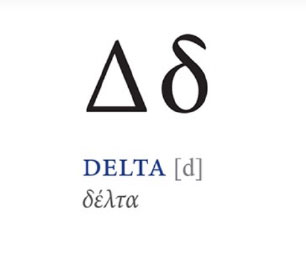Covid and the Delta Strain
The Delta variant of COVID-19 was first identified in India and is known as B.167.2. Delta is causing a spike in COVID-19 infections among unvaccinated people in England, where it has become the dominant variant of the new coronavirus. The recent spike in infections in England has delayed that country’s re-opening.

So what are the common signs and symptoms of the Delta variant?
There have been reports from the United Kingdom that suggest the most common COVID symptoms may have changed.
While fever and cough have always been common Covid symptoms, and headache and sore throat have traditionally presented for some people, a runny nose was reported more than before.
It could because of the evolution of the virus, and the different characteristics (viral factors) of the Delta variant. Why exactly do symptoms change, remains uncertain.
We still have more to learn about the Delta variant, this emerging trend is important because it may mean mild winter cold symptoms— a runny nose and a sore throat — could be a case of COVID-19.

Does vaccination affect the symptoms?
Although new viral variants can compromise the effectiveness of vaccines, for Delta, the vaccines available in Australia (Pfizer and AstraZeneca) still appear to offer good protection against symptomatic COVID-19 after two doses.
Importantly, both vaccines have been shown to offer greater than 90% protection from severe disease requiring hospital treatment.
Convincing evidence of the importance of being vaccinated occurred recently at a “super spreader” event in New South Wales:
Of 30 people who attended this birthday party, reports indicate none of the 24 people who became infected with the Delta variant had been vaccinated. The six vaccinated people at the party did not contract COVID-19 nor spread the virus to any further contacts.

In some cases infection may still possible after vaccination, but it’s highly likely the viral load will be lower and symptoms much milder than they would without vaccination.
We all have our part to play.
Evidence indicating Delta is more infectious compared to the original SARS-CoV-2 and other variants of the virus is building.
As we face another COVID outbreak in Australia we’re reminded the pandemic is not over!
Get tested if you have any symptoms, even if it’s “just a sniffle”.
Get vaccinated as soon as you can and follow public health advice.
Need an Appointment?
If you’d like to book an appointment with the dentist at Seymour Dental then call us in Dulwich Hill, Sydney on (02) 9564 2397 or
contact us
Next week
Dental Health Week Blog Series